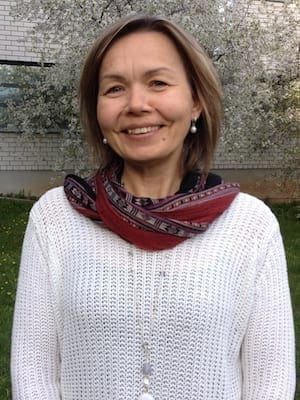Finland, “the land of a thousand lakes,” welcomed the delegates of the 11th assembly of the European Christian Environmental Network (ECEN) who gathered in the Sofia Cultural Centre in Helsinki from June 11-15.
The ECEN assembly meets every second year, offering an ecumenical platform for sharing and strengthening cooperation among representatives from different churches in Europe.
Fitting to the land of a thousand lakes, this year’s assembly discussed the topic “Water in a Sustainable Future,” and especially our Christian responsibility in addressing the issues of water shortage, pollution and its destructive power as a result of climate change.
The World Water Council launched #ClimateIsWater, an international initiative related to COP21 (Paris, December 2015) that is seeking to elevate the visibility for water within the climate change discussions.
The initiative emphasizes that “climate change manifests itself most powerfully within the water cycle.”
Referring to this statement, several ECEN assembly speakers emphasized that in our contemporary world where water is not equally shared and access to clean drinking water is in many parts of the world an ever-growing challenge, it is an issue of justice.
Yet, the issue of justice is deeply part of Christian identity.
Bishop Irja Askola stressed that working for justice cannot be seen as a trivial appendix to important church programs but it must be considered as one of the core values. It needs to be made part of churches’ everyday life and ministry.
“Let justice roll down like waters” (Amos 5:24) is the prophet’s call to God’s people to open their eyes and hearts to the world around them and get involved in situations where people and the rest of creation are suffering because of unjust structures and powers.
“The way we treat the environment, we treat other people,” claimed Father Heikki Huttunen, the Conference of European Churches (CEC) general secretary, challenging the assembly delegates. “We as Christians need to repent and change. And if the churches are not the agents of change, what are they?”
Huttunen emphasized that the environmental questions are very closely related to the questions of economy, refugee situation, social justice and other critical areas in our societies, to which the churches are called to respond.
Although the impacts of projected climate change are quite threatening, assembly speakers and participants shared their hope in God’s future that reaches beyond the “closed” world defined by scientific figures.
The Archbishop of the Finnish Evangelical Lutheran Church, Kari Mäkinen, stressed that prayer and the resurrection hope shared and lived out by Christians can make a difference because “in the middle of everything, and in spite of everything, God is.”
The ECEN assembly brought together 80 participants from more than 20 countries.
The assembly program and list of speakers are available here. The assembly statement affirming the theological and biblical imperative to work for water justice, and a call to action for individuals and churches, is available here.
 Helle Liht is the assistant general secretary at the European Baptist Federation. A version of this news article first appeared the EBF news page. It is used with permission. You can follow her on Twitter @HelleTweet.
Helle Liht is the assistant general secretary at the European Baptist Federation. A version of this news article first appeared the EBF news page. It is used with permission. You can follow her on Twitter @HelleTweet.

